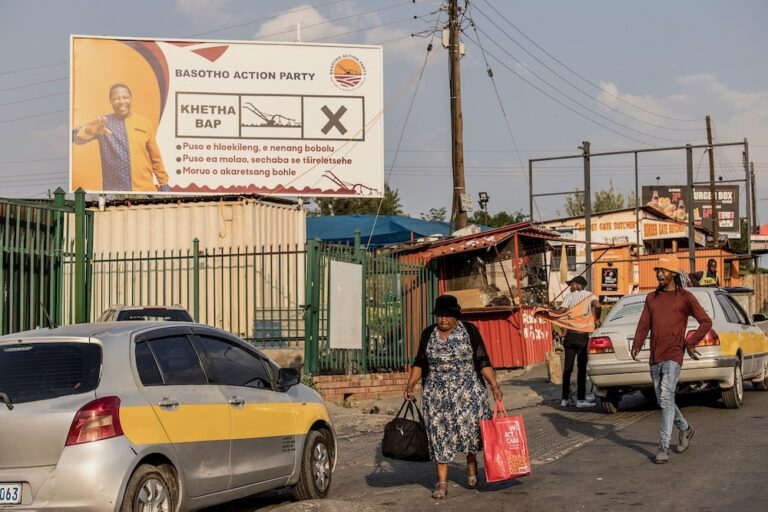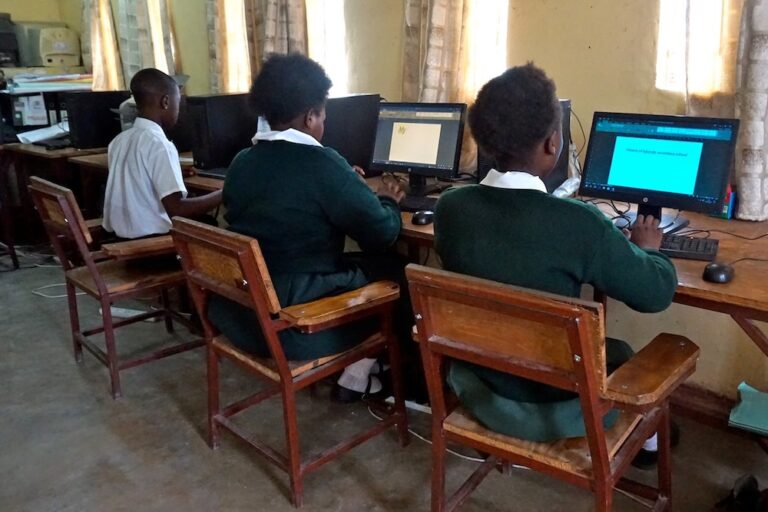(MISA/IFEX) – On 16 February 1999, the Zambian minister of Education, Godfrey Miyanda, said in parliament that the law relating to libel and defamation in the country needed amendment because some sections of the press were abusing it. Stating that press freedom did not entail newspapers “disparaging people with impunity, Miyanda called on legal affairs […]
(MISA/IFEX) – On 16 February 1999, the Zambian minister of Education,
Godfrey Miyanda, said in parliament that the law relating to libel and
defamation in the country needed amendment because some sections of the
press were abusing it. Stating that press freedom did not entail
newspapers “disparaging people with impunity, Miyanda called on legal
affairs minister Vincent Malambo to come up with legislation that would
stiffen punishment for offenders of the libel and defamation laws.
“You just have to pick up a newspaper …people are disparaging other
people with impunity in total disregard of the damage it does to others.
…In my opinion the punishment is negligible. I hope the Minister of
Legal Affairs will consider stiffening the penalties to deter these
people. Press freedom is not absolute. If nothing is done, people might
take matters in their own hands …there will be anarchy,” Miyanda told
parliament.
In reaction, the Zambia Independent Media Association (ZIMA) expressed
disappointment and condemned the Minister’s remarks. “ZIMA condemns
these utterances because they come at a time when the media is already
laden with laws that hinder press freedom in Zambia,” ZIMA chairman
David Simpson said in a statement.
Simpson said that, instead of calling for stiffer punishment, parliament
should be debating the repeal of the many laws that make the work of
journalists in the country difficult, among them the Official Secrets
Act and criminal libel. He added that the media must be free to report
on attacks made against people in public office, and be able to make
their own comments on the activities of such people.
“Fear of excessive penalties would seriously inhibit such reports and
comments, and make it easier for public officials to continue to pursue
corrupt or anti-social cases,” Simpson said.
He further stated that if there were specific cases in which the
minister believed that justice had not been done, and that people had
been “disparaged with impunity”, he was free to approach the Independent
Media Council.
“This recourse is also open to any person who believes he has been
unfairly treated by the media and instead of the law being tightened,
ZIMA believes it should be made less stringent,” he explained.
He reminded the authorities of the recent Bogoshi case in South Africa
where the court held that an accusation made against a person in public
office would not be considered libelous, even if untrue, provided that
when taking into account all the circumstances of the case the
publishers had reason to believe the accusation was true, and that it
was in the public interest to publish it.
In a separate but related incident, on 11 February, Zambian Information
Minister Newstead Zimba told parliament that the media needed to
practice self-censorship in order to avoid libel cases. Winding up a
debate on the estimates of expenditure for his ministry, the “Post”
newspaper quoted Zimba as saying that the MMD (ruling Movement for
Multi-party Democracy) government had always been advocating for free
press and speech.
He said that what was needed now was self-censorship, in order to avoid
hurting other people, because libel cases could be very inconveniencing
to authors. “We do not take kindly to reading about certain articles
which border on defamation,” Zimba said. He said that the free speech,
which the MMD had brought about, was now enabling members of parliament
to express themselves freely in their debates in the House and people
generally did that either in electronic or print media.
Zimba also commended the finance minister, Edith Nawakwi, for waiving
the 5 per cent duty on all newsprint. This however left a 17 per cent
Value Added Tax (VAT) to be paid on newsprint imports. Zimba said this
move would assist local publishers. He said this demonstrated that
theirs was a government that listened because publishers had been
calling for this for a long time now.
He appealed to local and foreign investors to take advantage of this and
start new publications, especially in rural areas.


